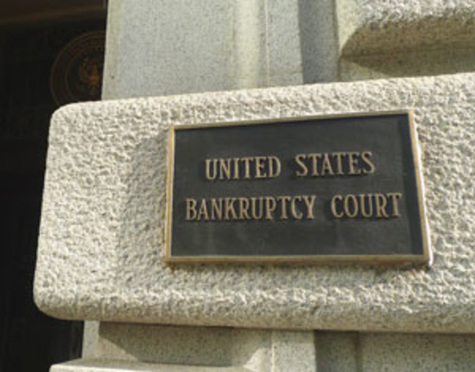Bankruptcy Court Authorizes Rejection of Employment Separation Agreements
The Bankruptcy Code can be an effective tool for reducing liabilities and enhancing asset value for the benefit of creditors. One of the more important tools is the right to not only assume favorable contracts pursuant to Section 365, but also to reject those which are not.
December 21, 2017 at 11:19 AM
7 minute read

The Bankruptcy Code can be an effective tool for reducing liabilities and enhancing asset value for the benefit of creditors. One of the more important tools is the right to not only assume favorable contracts pursuant to Section 365, but also to reject those which are not. Section 365 allows a debtor to pick and choose those agreements which it believes provide the best opportunity to reorganize or alternatively, sell its assets. However, any agreement subject to assumption or rejection must be executory, i.e., both parties must have material unperformed obligations on the date of the bankruptcy filing. A recent decision from the U.S. Bankruptcy Court for the District of Delaware which found two pre-petition employment separation agreements to be executory and subject to rejection, serves as a useful reminder to practitioners of this threshold requirement and the need to carefully identify and provide evidence of the ongoing obligations, or lack thereof, under any pre-petition contract in In re Rupari Holding, 2017 Bankr. LEXIS 4095 (Bankr. D. Del. Nov. 28, 2017).
The Rupari debtors entered Chapter 11 on April 10. Prior to filing, they signed separation agreements with two former employees claiming to have been unlawfully replaced by younger workers. The separation agreements, among other things, bound the former employees to: a noncompete clause for a term of six months after their respective separation dates; a nonsolicitation clause for a term of twelve months after their respective separation dates; a confidentiality clause; and a release of all claims against the Debtors arising out of their employment or termination. Under the separation agreements, the debtors agreed, among other things, to make installment payments to the former employees for hours worked and accrued, unused vacation through their respective separation dates of April 17 and May 26.
One day after filing their bankruptcy petitions, the Rupari debtors sought and subsequently obtained court authorization to sell substantially all of their assets, which did not include the separation agreements. The debtors thereafter ceased operations, and moved to reject a number of their pre-petition contracts, including the separation agreements, retroactive to the date of closing in June 2017. The former employees objected arguing that the separation agreements were not executory having been “virtually fully performed,” and therefore, not subject to assumption or rejection.
The court observed that the primary issue raised by the former employees was whether there were bilateral material unperformed obligations under the separation agreements on the petition date. The debtors highlighted their ongoing obligations to pay accrued vacation and additional consideration under the separation agreements, on the one hand, and to the former employees' obligations to continue working for the debtors until their respective (post-petition) separation dates and to adhere to the non-compete and non-solicitation requirements, on the other hand. The former employees, by contrast, argued that the separation agreements were no longer executory as of the petition date because the debtors had already derived the value they wanted through the release given by the former employees.
The court first addressed the former employees' argument that the primary value of the separation agreements to the Debtors was the former employees' obligation to release their claims. The court observed that there was “scant evidence” supporting this assertion. Determining the subjective intent of the debtors was unnecessary, however, because if the former employees' obligations to adhere to the noncompete and nonsolicitation clauses were material to the separation agreements, the former employees' argument regarding the release obligations failed. The court looked to Illinois law to determine whether a breach is material, finding that the inquiry could be broken into three separate questions: what was the bargained-for objective of the parties to the separation agreements; under Illinois law, is the breach of non-compete and nonsolicitation clauses generally considered material in the overall context of employment agreements; and would the former employees' breach of the noncompete or nonsolicitation clauses disproportionately benefit the Debtors by negating their obligation to pay the remaining unused vacation and additional consideration for which they were obligated?
Turning to the first question, the court noted that the starting point for determining the bargained-for objective of the parties was the “four corners” of the separation agreements. Each of the agreements provided that “Breach of any obligation or covenant set forth [therein] will have a material and adverse effect upon the company and will cause the company irreparable harm, and damages arising from any breach may be difficult to ascertain.” The debtors argued that this language was indicative of the import and materiality of the restrictive covenants in the separation agreements. The court, however, observed that this language applied to all obligations and covenants within the separation agreements, not just the noncompete and nonsolicitation clauses. Second, the court concluded that under Illinois law, the breach of noncompete and nonsolicitation covenants is material, even in the context of transactions and agreements much larger in scope than the separation agreements. Finally, the court found that there was nothing in the record indicating that, upon a breach of the noncompete or nonsolicitation clauses, the former employees would suffer a disproportionate harm or that the debtors would disproportionately benefit if they were able to then discontinue their own obligations under the separation agreements.
The court thus concluded that in light of the language of the separation agreements indicating that the parties intended to convey materiality to each restrictive covenant, Illinois law on the materiality of the breach of such provisions, and the absence of a disparity in the advantages upon a hypothetical breach of such provisions, the noncompete and nonsolicitation provisions of the separation agreements were material. Therefore the parties to each of the separation agreements had material unperformed obligations on the petition date which rendered them executory and subject to rejection or assumption under Section 365 of the Bankruptcy Code.
Turning to whether the rejection of the separation agreements was a valid exercise of the debtors' business judgment, the court reasoned that the buyer elected not to assume the agreements, and given the sale of substantially all of their assets, the cessation of operations, and focus on winding down their estates, the record was clear that the agreements no longer provided any benefit to the debtors or their estates. Their rejection was therefore, a sound exercise of the debtors' reasonable business judgment. Finally, citing principles of equity under the circumstances, the court authorized the rejection of the separation agreements, retroactive to the date of closing.
The former employees in Rupari may have underestimated the importance of their ongoing noncompete, nonsolicitation and confidentiality obligations under the separation agreements, which the court found determinative as to their executory nature. The Rupari decision reminds practitioners that the threshold question underlying the right to assume or reject a contract under Section 365 of the Bankruptcy Code is whether bilateral material obligations remain outstanding, and therefore, practitioners must identify for and provide evidence to the court of any and all such ongoing obligations that may exist as of the petition date.
Francis J. Lawall, a partner in the Philadelphia office of Pepper Hamilton, concentrates his practice on national bankruptcy matters and workouts, including the representation of major energy and health care companies in bankruptcy proceedings and general litigation throughout the United States.
Michael J. Custer is an associate in the corporate restructuring and bankruptcy practice group of the firm, resident in the Wilmington office.
This content has been archived. It is available through our partners, LexisNexis® and Bloomberg Law.
To view this content, please continue to their sites.
Not a Lexis Subscriber?
Subscribe Now
Not a Bloomberg Law Subscriber?
Subscribe Now
NOT FOR REPRINT
© 2025 ALM Global, LLC, All Rights Reserved. Request academic re-use from www.copyright.com. All other uses, submit a request to [email protected]. For more information visit Asset & Logo Licensing.
You Might Like
View All
Federal Judge Allows Elderly Woman's Consumer Protection Suit to Proceed Against Citizens Bank
5 minute read
Dilworth Paxson Launches Erie Office With Longtime Local Banking Attorney
4 minute read
Stradley Ronon Bolsters Investment Management Practice With Vanguard Hire
4 minute readTrending Stories
- 1ACC CLO Survey Waves Warning Flags for Boards
- 2States Accuse Trump of Thwarting Court's Funding Restoration Order
- 3Microsoft Becomes Latest Tech Company to Face Claims of Stealing Marketing Commissions From Influencers
- 4Coral Gables Attorney Busted for Stalking Lawyer
- 5Trump's DOJ Delays Releasing Jan. 6 FBI Agents List Under Consent Order
Who Got The Work
J. Brugh Lower of Gibbons has entered an appearance for industrial equipment supplier Devco Corporation in a pending trademark infringement lawsuit. The suit, accusing the defendant of selling knock-off Graco products, was filed Dec. 18 in New Jersey District Court by Rivkin Radler on behalf of Graco Inc. and Graco Minnesota. The case, assigned to U.S. District Judge Zahid N. Quraishi, is 3:24-cv-11294, Graco Inc. et al v. Devco Corporation.
Who Got The Work
Rebecca Maller-Stein and Kent A. Yalowitz of Arnold & Porter Kaye Scholer have entered their appearances for Hanaco Venture Capital and its executives, Lior Prosor and David Frankel, in a pending securities lawsuit. The action, filed on Dec. 24 in New York Southern District Court by Zell, Aron & Co. on behalf of Goldeneye Advisors, accuses the defendants of negligently and fraudulently managing the plaintiff's $1 million investment. The case, assigned to U.S. District Judge Vernon S. Broderick, is 1:24-cv-09918, Goldeneye Advisors, LLC v. Hanaco Venture Capital, Ltd. et al.
Who Got The Work
Attorneys from A&O Shearman has stepped in as defense counsel for Toronto-Dominion Bank and other defendants in a pending securities class action. The suit, filed Dec. 11 in New York Southern District Court by Bleichmar Fonti & Auld, accuses the defendants of concealing the bank's 'pervasive' deficiencies in regards to its compliance with the Bank Secrecy Act and the quality of its anti-money laundering controls. The case, assigned to U.S. District Judge Arun Subramanian, is 1:24-cv-09445, Gonzalez v. The Toronto-Dominion Bank et al.
Who Got The Work
Crown Castle International, a Pennsylvania company providing shared communications infrastructure, has turned to Luke D. Wolf of Gordon Rees Scully Mansukhani to fend off a pending breach-of-contract lawsuit. The court action, filed Nov. 25 in Michigan Eastern District Court by Hooper Hathaway PC on behalf of The Town Residences LLC, accuses Crown Castle of failing to transfer approximately $30,000 in utility payments from T-Mobile in breach of a roof-top lease and assignment agreement. The case, assigned to U.S. District Judge Susan K. Declercq, is 2:24-cv-13131, The Town Residences LLC v. T-Mobile US, Inc. et al.
Who Got The Work
Wilfred P. Coronato and Daniel M. Schwartz of McCarter & English have stepped in as defense counsel to Electrolux Home Products Inc. in a pending product liability lawsuit. The court action, filed Nov. 26 in New York Eastern District Court by Poulos Lopiccolo PC and Nagel Rice LLP on behalf of David Stern, alleges that the defendant's refrigerators’ drawers and shelving repeatedly break and fall apart within months after purchase. The case, assigned to U.S. District Judge Joan M. Azrack, is 2:24-cv-08204, Stern v. Electrolux Home Products, Inc.
Featured Firms
Law Offices of Gary Martin Hays & Associates, P.C.
(470) 294-1674
Law Offices of Mark E. Salomone
(857) 444-6468
Smith & Hassler
(713) 739-1250






